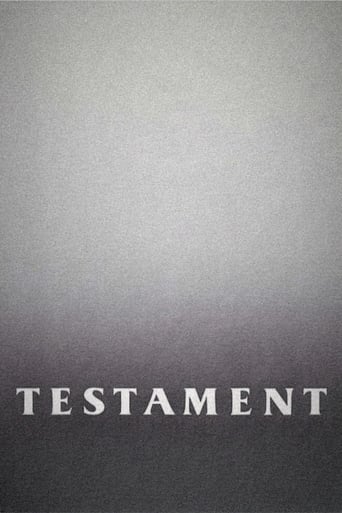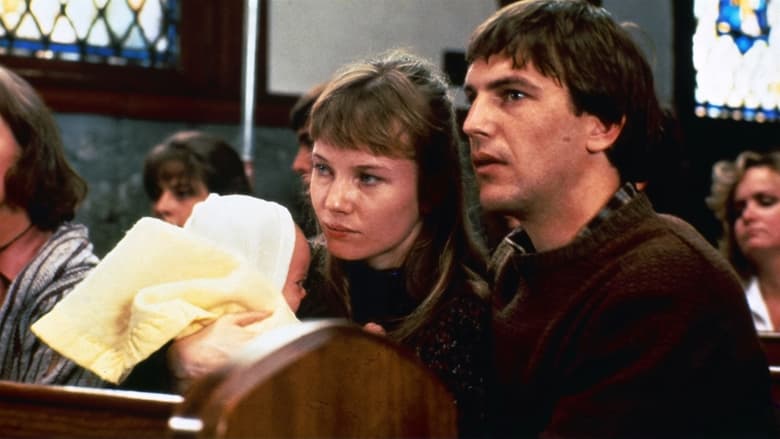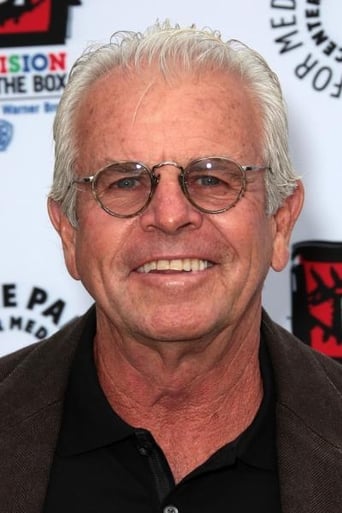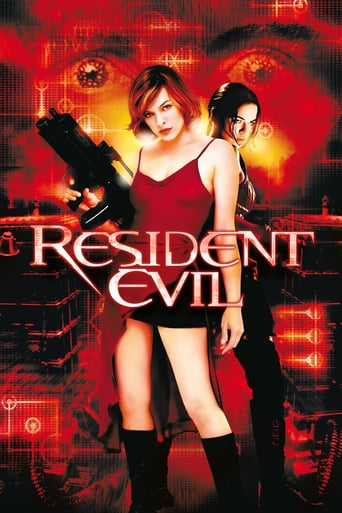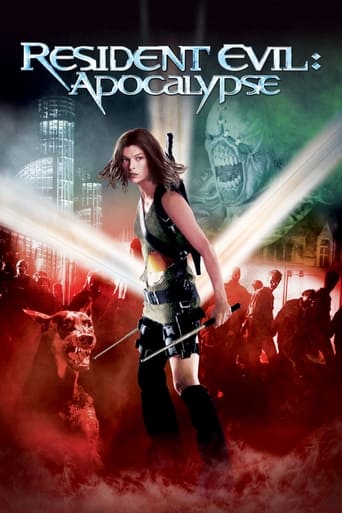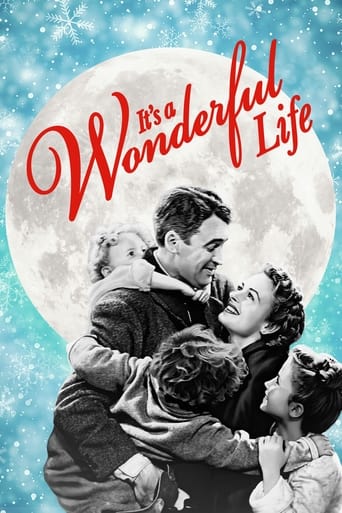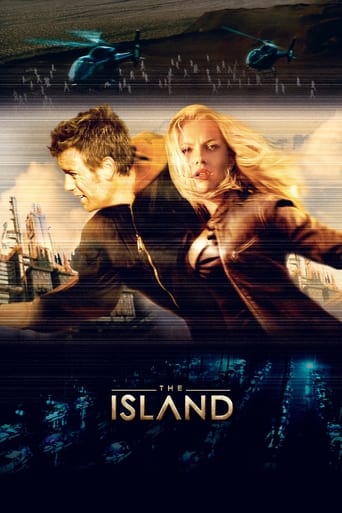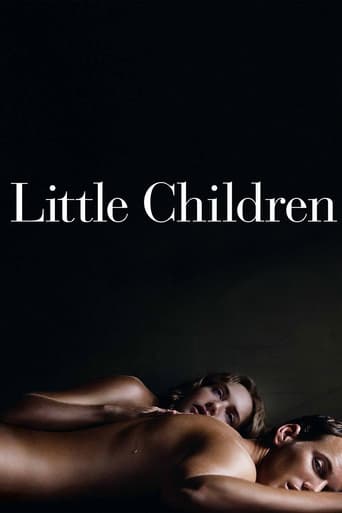Testament (1983)
It is just another day in the small town of Hamlin until something disastrous happens. Suddenly, news breaks that a series of nuclear warheads has been dropped along the Eastern Seaboard and, more locally, in California. As people begin coping with the devastating aftermath of the attacks — many suffer radiation poisoning — the Wetherly family tries to survive.
Watch Trailer
Cast


Similar titles
Reviews
Let's say right now that a nuclear war started. What would you do first? Who would you want to be with? What could you afford to lose? What if you weren't prepared? These are questions we all wonder about once in a while, but of course, there is no nuclear war... right? Well, in The Testament, a depressing yet beautiful film featuring the last remaining town in America, this situation becomes real for the main character, Carol. A mother of three and married to a great guy, living in community of friendly people, she never considers that anything bad could ever happen to her little utopia suburb bubble.Then suddenly the power fails, radio becomes the only means of communication. It is discovered that a nuclear holocaust has wiped out much of the surrounding nation, and that the suburb has been affected only by the fallout... which leads to a fate worse than death.Brad, Carol's son, "adopts" a new friend into the family, Larry, who says his parents went to work in the city and never came back. Life, for the most part, continues as normal... but then the community succumbs to the radiation sickness, and even poor Larry and the kind radio broadcaster Henry have suffered terrible deaths. Brad and Carol are left sewing a shroud out of bedsheets for her daughter, Mary Liz, and Brad also "adopts" a disabled little boy, Hiroshi, bringing him to the house...But it's up to Carol to decide whether or not to control the fate of the two kids.This film, unlike Threads (1984), is not gory at all, in fact it shows very little, if any, death. You may think that to be boring but it leaves you to picture in your head just how awful the deaths of these people would be. The soundtrack... well, there isn't much in terms of soundtrack, which somehow makes it more realistic when you are left with empty silence. The acting is excellent and it's one of the best films I've seen. I think Hiroshi was the best played role, and it was wonderful to see a movie not referring to him as a "retard" just for having disabilities. But the most depressing parts of this movie are the brief visions Carol has of her old 8mm home videos. The videos themselves are memories of happy times, but the people in them are all dead, either vaporized by the bomb outside town, dead from radiation sickness or slowly waiting for the end. It makes us all realize how quickly we take the smallest moments for granted.DO NOT PASS UP THIS MOVIE, it's one of the saddest yet most hopeful ones you'll ever see.
One of the things that makes "Testament" so interesting is simply the fact that one expects a movie about the aftermath of a nuclear holocaust to be exciting. But "Testament" isn't exciting. Instead it starts out routinely ordinary. We simply meet the Wetherly family. Mom, dad and 3 kids. They have all the love and all the problems of any family. There's nothing extraordinary about them. And they live in the extremely un-extraordinary small town of Hamlin, California. Everything is un-extraordinary until one day the TV goes out. When it finally comes back on, it's carrying news of a massive nuclear attack on large portions of the United States. Aside from a very bright light coming through the front window of their home, nothing much happens in Hamlin - except for the aftermath.There's no one to turn to for help, there's hardly anyone left to be in contact with. The bright light, of course, told us that while Hamlin wasn't destroyed, there must be radiation. Can anything be safely eaten? Can the water be safe to drink? Have the people been hopelessly exposed? We watch, as things slowly begin to fall apart in Hamlin.A lot of this revolves around the children. So many children. Children who had a whole lifetime ahead of them and were busy practicing a school play, when the unimaginable happened. The school play goes ahead, to try to maintain some sense of normalcy, but nothing is normal anymore. People get sick, people begin to die, and there's just no hope. None at all.It's the sense of absolute and utter hopelessness that permeates this movie and that finally makes it both so sombre and so powerful. It's not at all "exciting" in the normal sense of the word, but it's gripping. You can't let it go once it starts. I actually watched this back in 1983 when it was released. Today, it's a bit of a curiosity. But in 1983 the Cold War was still going on, the Soviet Union still existed, and Gorbachev hadn't come to power to bring a sense that, to paraphrase Margaret Thatcher, "we can work with him." In the pre-Gorbachev era, the Soviet Union was mighty threatening, and this movie would have at least been unsettling in its believability. Even today, with the Soviet Union long dead, "Testament" has power. (8/10)
"Testament," a bold and occasionally brilliant film about the consequences of a nuclear attack, really does have the feel and mindset of a memoir. More specifically, a memoir written by somebody who might or might not have survived a tragic event they never fully understood. One of the movie's surefire touches of genius lies in the fact that its narrating protagonist, a commonplace small-town mother very well-played by Jane Alexander, never learns who triggered the nuclear war that wrecks life as she knows it. In spite of what the movie posters would have us believe, we never see the actual attack—only a bright series of flashes near the beginning. Afterwards, we only observe the after-effects: the radiation sickness, the townspeople turned on one another, the cemeteries and backyards filling up with coffins. In many of these moments, "Testament" has some great power.However, as a memoir-mindset, it also suffers from a patchy narrative. If we want to consider it like a memoir, then it was one in which the writer only jotted down their experiences in the barest of detail and only once every few weeks. I am completely appreciative that the makers of the film never spoiled their intentions (they never tell us who is responsible for the attack) but I wanted more of the consequences. I wanted to get to know the protagonist better, I wanted to understand her relationship with her three children, I wanted more of a sense of loneliness when her missing husband never returns home. There are a number of characters who succumb to radiation poisoning (we are told several hundred) but only one death registers an emotional impact. The others certainly attempt to make us feel, but I could not stir any empathy, as I felt I had not come to know these people as human beings.Running down the casualty lists in "Testament" is like scrolling through a list of casualties from a tragic event long before you were born: I certainly felt sorry for what happened to them, but there was no particular level of sympathy from one name to the other. Maybe that says something about me as a human being, but I never really had the impression that I could imagine being in the middle of it myself. In spite of Miss Alexander's wonderful performance, there is not much of a character there. At the end of "Testament," I wanted to know about her struggles and get involved; I wanted to feel heartbroken that she waited so long and so futilely for a loved one to finally return home. Even an attempted suicide scene, something I would expect of a situation like in this movie, could not bring me to care much.To the movie's credit, it is very well-produced. Lynne Littman, the director, has a solid instinct for placing her camera and instructing actors how to move, where to stand, and how to perform. She also has a very subtle, unpretentious style: something absolutely necessary given the movie's intentions. And the cinematography by Steven Poster (artfully drab with a washed-out lens trick) is absolutely lovely to behold. It just goes to show that the camera does not need to be flourished with strobes and bright colors for a scene to be beautiful. And there are some scenes of great power: an opening moment where a father and son have a bike race, an extremely touching scene where a mother and her daughter, both of whom expect to die soon, have an honest and open conversation about sex. And the movie's occasional usage of Super 8 home-video footage is a great touch. The music by James Horner is very good (it has a haunting quality reminiscent of the soundtrack from "Blade Runner") but is not heard nearly enough. There are a number of very fine moments in which some subtle, in-the-background notes would be really appreciative, to bring the whole sequence full circle. That just might be the movie's problem: "Testament" never seems to come all the way around with its intentions. Despite its artistically restrained mindset and no matter how much I would like to have been moved and had my thoughts provoked by it, "Testament" did not register much of an emotional impact for me.
The true mark of an exceptional film. That almost 30 years years later you can vividly remember the way you felt watching it on the big screen. I saw it with my father. He was not a man who cried. He cried during this movie and gripped my hand. I was 25 at the time. I've had the DVD for quite some time and have only been able to watch it two other times, it's that emotional to watch. I hope that movies like Testament and The Day After had some affect on those in whose hands the decision to turn the key rests. Growing up practicing "duck and cover" in school, this movie was terrifying. Something I don't think those born after 1975 could understand. Jane Alexander gave the performance of a lifetime in this movie. Testament is not a film to entertain but to educate. Young Lucas Haas with his utterly innocent angelic looks was perfectly cast as the innocent victim of insanity. There are few films that are so difficult to watch yet so important to watch. Schlinder's List comes to mind. Don't avoid this film because it is uncomfortable to watch, it's worth it.

